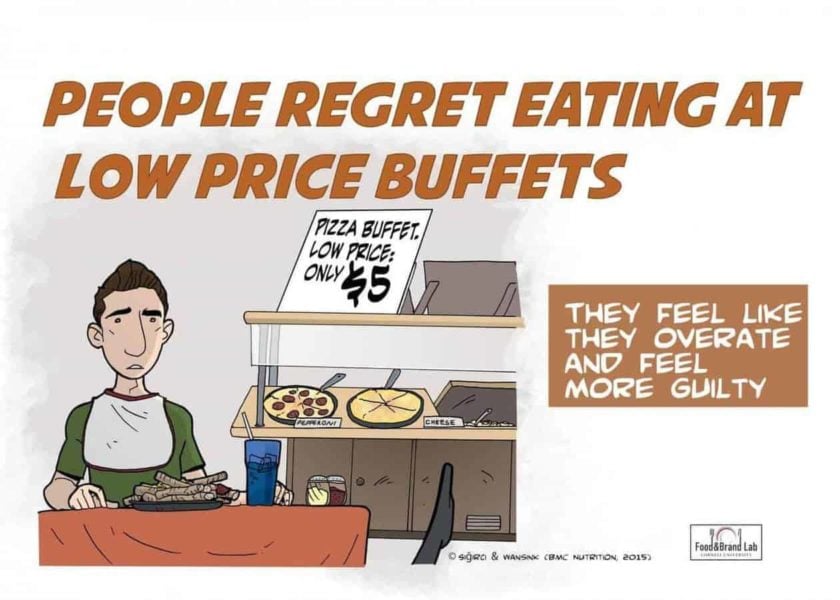Ever wonder how much the price you pay for an All-You-Can-Eat (AYCE) buffet influences how you feel at the end of the meal? To explore this idea and address the lack of studies that do, this study examines whether pricing affects key indicators such as overeating, physical discomfort, and guilt. Researchers discovered that lower paying diners feel more physically uncomfortable and guiltier compared to the higher paying diners, even when eating the same amount – a finding that has implications for consumers, restaurants, and public health officials. This study is unique in that it was conducted in the field, where subjects’ natural behavior could be observed unobtrusively. It is also the first to address the effects of pricing on consumers’ experienced feelings, such as guilt and satiety.
In total there were 139 participants, who were approached outside of Aiello’s Italian Restaurant, an AYCE restaurant mid-way between Syracuse and Binghamton, New York. Customers were randomly assigned to one of two price conditions (low vs. high price); one group was given a flier that promoted an $8 buffet and a free beverage, while the other was given the same flier and informed they would be receiving a 50% discount. The study was conducted during a two-week time period during weekday lunch buffet hours from 11am to 1:30pm.
Brian Wansink, PhD (left) and members of his research team in front of Aiello’s in Whitney Point NY, where the study was conducted The results of this study have important implications for both academics who are focused on pricing and satiety issues, and for practitioners who are responsible for pricing strategy and for health and eating issues, such as restaurant owners, marketers, dietitians, and governments. They also directly impact consumers; as co-author Brian Wansink says, “If you don’t want to experience guilt or feel stuffed after a meal, eat from a higher priced AYCE buffet and focus on eating more healthy options instead of trying to ‘eat your money’s worth.'”

